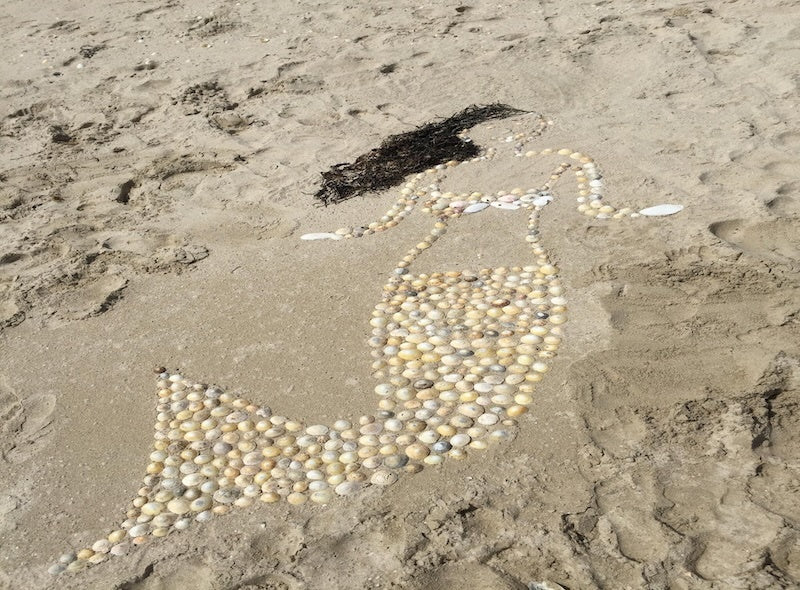
How to Cope Ahead for Crisis and Build a Life Worth Living
By Michelle Lunger
In our last blog post, we shared a crisis tool kit using Dialectical Behavioral Therapy (DBT) skills. To follow up with that blog, we wanted to share how to cope ahead for times of distress along with tips on how to build a life worth living. Building a life worth living is one of the core beliefs in Dialectical Behavioral Therapy. For many, living a meaningful life is not even an afterthought. But for those struggling with suicidal ideation, depression, anxiety or mental health challenges, it can be essential for crisis and relapse prevention. Building a life worth living can help those struggling create meaning and purpose in their lives. It can help remind those struggling that they don’t only deserve to survive or cope, but thrive as well. This post highlights the DBT skills: ABC PLEASE.
ABC Skills
A: Accumulate positives
Accumulating positive emotions and experiences is essential to build a life worth living! When you are feeling depressed sometimes it can feel easier to withdraw or isolate yourself especially when it can be hard to get pleasure from things you used to enjoy. But in doing so, this can amplify feelings of loneliness, emptiness, and/or depressive thoughts and feelings. The more you accumulate positive experiences the more you fill your cup with good things and good emotions. It can also remind yourself that feeling good is safe and possible again.
Some positive activities that can spark joy and positive emotions can be self care, spending time with loved ones including those who make you feel safe, seen, and heard, doing something fun with your furry friends or cuddle sessions, scheduling times for your hobbies, sports, or daily movement. You can also try planning a staycation or trip, doing something spontaneous or trying something new! It can be helpful to have things to look forward to and get excited about.
B: Build Mastery
The goal is to build a sense of accomplishment and achievement which can lead you to live a more fulfilled life. Building mastery helps you get out of your comfort zone while reminding yourself that you are capable and you can achieve things again, even if it doesn’t feel like it at the moment.
-
Work on short-term goals or work towards long-term goals every day.
-
Try to break down the steps, set smaller, realistic goals. Small steps are still steps forward.
-
Try to challenge yourself. Work on things outside your comfort zone.
-
Celebrate every win, accomplishment, and every inch of progress.
-
Failure is ok, give yourself grace and compassion.
-
Leave time for reflection on all your progress; struggles, lessons, and achievements.
Examples:
-
In therapy, you can try to work on a specific therapeutic method- whether that is learning coping skills (such as DBT, CBT) or a different modality/approach within either your therapist's specialty or a new therapist. Some types of therapy include somatic experiencing, EMDR, brain spotting, Internal Family Systems, group therapy, art therapy, yoga therapy, pet therapy and more. Try to track your progress, practice skills, and/or leave time for reflection and processing.
-
Work on a hobby, something that you have never done, haven’t had time to do, or haven’t done in a while.
Examples:
Art: knitting/crocheting, coloring books, collaging, drawing/painting, digital art/graphic design, jewelry making, sewing/repurposing clothing, etc.
Writing/Reading: journaling, creative writing, stories, poems, gratitude journals, brain dumps, writing prompts, reading self-help and educational books, e-books, or podcasts, reading a new genre, exploring new books to read or setting a goal for reading etc.
Movement: joining a recreational sports team, starting a new work out class or regimine, yoga, meditating, running or walking daily with goals- track steps, create a goal for distances, or just congratulate yourself daily for moving your body.
Nature/Outdoor Activities: hiking, camping, gardening, exploring new or visiting your favorite parks, gardens, beaches, or trails.
Social Activities: join or start a book club, join a support group- either online through zoom, facebook (they have tons of groups!), or therapeutic. Game nights, volunteering, joining a club.
Learning/Education: Learn a new language, earn a degree or certificate, self-guided research on a special or new interest, learn how to play an instrument.
C: Cope Ahead
Coping ahead for stressful situations can help reduce distress. It can also help you feel more in control in the situation and prepare you with tools to work through your triggers, anxiety, depression, etc. It’s about being proactive rather than figuring out what to do while you are already in distress. This skill can help you identify your triggers, increase your confidence, and reduce your vulnerability to stress while building resilience. Coping ahead can remind you that you are capable of navigating life's challenges- no matter what life throws you.
-
Think or write down an upcoming situation, potential situation, or a commonly triggering experience.
-
Name what emotions or actions these situations tend to bring up.
-
Ask yourself what worked in the past, what hasn’t worked? If something hasn’t worked, try to problem solve and ask yourself what you can do differently next time or even make it more enjoyable!
-
Ask yourself if there is anything you can plan to de-stress before a stressful situation or make a stressful situation more tolerable.
-
Try to imagine yourself coping with the situation, working through whatever comes up.
Example:
You have an important deadline coming up. You know you usually wait until the last minute and it usually causes you distress.
Emotions associated with deadlines: anxiety, overwhelm, stress
Actions associated: avoidance, rushing, procrastination
What worked in the past? Planning ahead of time and breaking it up into steps. Working on it daily for a set time each day to break up the work. Setting reminders and celebrating wins while accomplishing each task.
What doesn’t work? Waiting until the last minute, letting the tasks build up, rushing to get things done in a short amount of time.
What else can you do to minimize distress? Taking breaks, practicing self-compassion and giving myself grace, being realistic about daily goals, being honest with myself and others, feeling and processing emotions that come up- riding the waves of the emotions.
PLEASE Skills
Mental health is health and taking care of your body is also taking care of your mind. Usually I find that if I neglect one of these things, I feel less regulated and it can affect my daily functioning. Although mental health isn’t always visible, it can manifest physically as well. That is why it is so important to make your mental and physical well-being a priority.
Note that the acronym for PLEASE can be a bit of a stretch, but nonetheless these things are essential and necessary for taking care of your mental health and overall well-being! Although taking care of yourself may look different for everyone, sleep, nutrition, and exercise/ daily movement can make a big impact.
P/L: Treat Physical Illness
Take care of your body, take prescribed medication, schedule doctors appointments/ follow ups as necessary.
E: Eating
Balanced eating and nourishment. Intuitive and mindful eating.
A: Avoid
Try to avoid mind altering substances, including alcohol. If you struggle to avoid these things, practice moderation! Also if you are dealing with substance abuse or addiction, try to seek help.
SAMHSA’s National Helpline is a free, confidential, 24/7, 365-day-a-year treatment referral and information service (in English and Spanish) for individuals and families facing mental and/or substance use disorders.
1-800-662-HELP (4357)
S: Sleep
Try to get 7-9 hours of sleep or at least an amount of hours that make you feel rested enough.
Try to keep a consistent sleep schedule.
Are you sleeping too much or too little? Can you make time for rest, a break, or a nap?
E: Exercise
Try to get some daily movement in. You don’t have to join a gym, go to an exercise class, or do something intense. Leaving time for some walking, light stretching, or even breathing exercises is good. Try to do what you can based on what your body needs and make it work for you!











